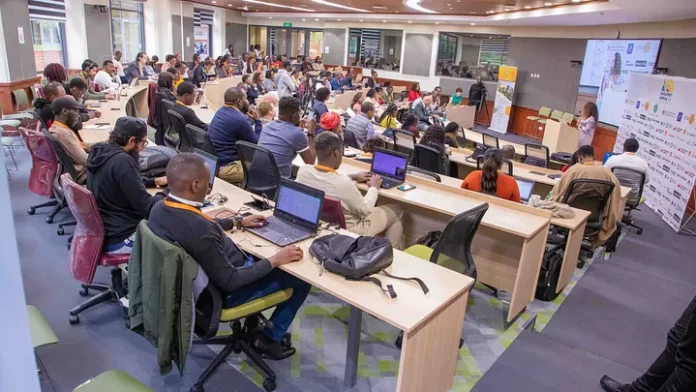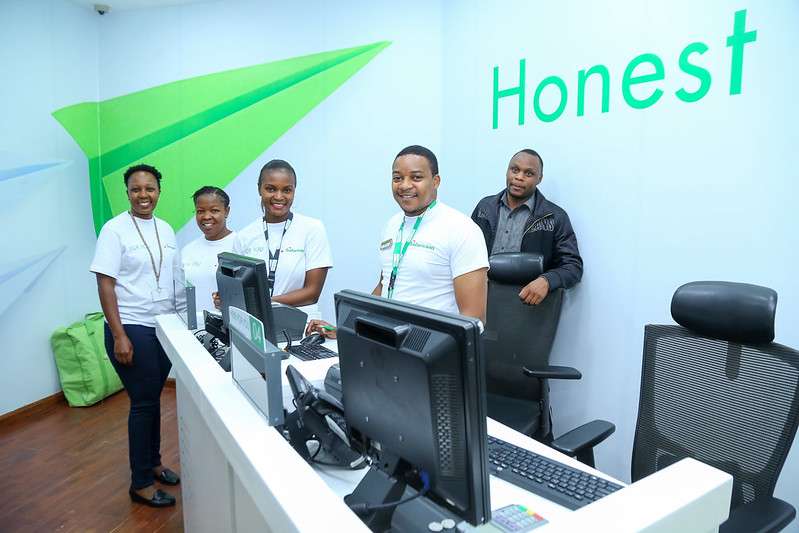As DataFest in Nairobi unfolds, the theme of turning the data tables extends beyond the realm of data-driven innovation. It encompasses a powerful aspect — gender equality. The event champions the importance of equal representation and opportunities for women in the data science and technology fields.
Amidst the workshops and discussions, women stand at the forefront, breaking barriers and defying stereotypes. Pollicy’s commitment to fostering an inclusive data ecosystem is evident as scholarships and resources are provided to empower aspiring female data scientists. These opportunities not only bridge the gender gap but also amplify diverse perspectives, recognizing that true innovation thrives in an environment that embraces gender equality.
Throughout DataFest, inspiring female speakers take the stage, sharing their expertise and experiences. Their presence challenges the notion that the data field is dominated by men. They serve as role models, encouraging women to pursue careers in data science and technology, and inspiring them to contribute their unique insights to turn the data tables.
In the recently concluded “VizQuest challenge,” ahead of the DataFest event in Nairobi, women-led teams showcased their talents and skills, proving that gender is not a barrier to innovation. They tackled complex data problems with tenacity, demonstrating their ability to extract meaningful insights and propose transformative solutions. Their participation reflected the breaking of traditional gender roles and reinforced the message that gender equality is a fundamental driver of progress in the data community.
The exhibition hall at DataFest provides a platform for women-led startups and companies to showcase their groundbreaking work. Their innovative products and services illustrate the value that gender diversity brings to the data landscape. Attendees witness firsthand the impact of diverse perspectives on turning the data tables, reinforcing the importance of equal representation and opportunities for all.
As the event concludes, the impact of gender equality at DataFest resonates beyond its walls. Participants, both women, and men, carry the message of inclusivity and gender equality into their professional lives. They become advocates for equitable representation, pushing for policies and initiatives that promote gender diversity and empower women in data science and technology.
The ripple effect of DataFest’s focus on gender equality is felt in the wider data community. It inspires organizations and institutions to address gender disparities in the industry, promoting mentorship programs, scholarships, and leadership opportunities for women. The data ecosystem becomes more diverse and vibrant, unlocking new perspectives, ideas, and breakthroughs.
The future of data science in Nairobi and beyond shines brightly with the promise of gender equality. Women are increasingly recognized as critical contributors to the data revolution, occupying leadership positions and driving innovative projects. The impact of their work extends beyond DataFest, transforming industries, informing policies, and inspiring future generations of data enthusiasts.
In the tapestry of turning the data tables, gender equality weaves a powerful thread. It underscores the importance of inclusive representation and amplifies the voices of women in the data community. With a shared commitment to equality, the future holds unlimited possibilities, where women and men stand side by side, leveraging data as a force for transformative change, and collectively shaping a more equitable and inclusive world.





